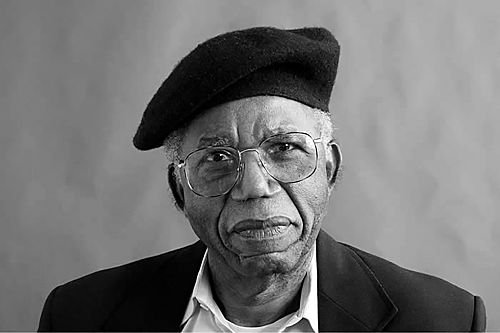Chinua Achebe, one of Africa’s most celebrated novelists and poets, passed away on March 21, 2013. He is best known for his novel Things Fall Apart, which is widely regarded as a masterpiece of modern African literature. Through his works, Achebe reshaped the world’s perception of African culture, history, and storytelling, challenging colonial narratives and giving voice to African identity.
1. Born in the Igbo Heartland – Achebe was born on November 16, 1930, in Ogidi, Anambra State, Nigeria, one of the first places in Igboland to be exposed to Christianity.
2. Grew Up in a Christian Family – His parents, Isaiah and Janet Achebe, were devout Christians, which influenced his worldview and later reflected in his writing.
3. Excelled in School – Achebe was an exceptional student and won a scholarship to study medicine at University College, Ibadan, but later switched to English, history, and theology.
4. Worked as a Broadcaster – Before becoming a full-time writer, he worked at the Nigerian Broadcasting Corporation (NBC) and later became its director of external broadcasting.
5. Wrote Things Fall Apart at 28 – He completed his groundbreaking novel Things Fall Apart in 1958, which became one of the most translated and studied African books worldwide.
6. Inspired by Igbo Proverbs and Traditions – Achebe’s writing style was deeply influenced by Igbo oral traditions, storytelling, and proverbs.
7. Rewrote the African Narrative – His novels countered Western portrayals of Africa as primitive, showing the complexity of pre-colonial African societies.
8. Was a Strong Critic of Joseph Conrad – In his famous essay An Image of Africa, Achebe criticized Joseph Conrad’s Heart of Darkness for its racist portrayal of Africans.
9. Established Modern African Literature – Before Achebe, African literature was largely influenced by colonial perspectives, but his works paved the way for African writers to tell their own stories.
10. His Work Was Rejected at First – Things Fall Apart was initially rejected by several publishers before being accepted by Heinemann, which later launched the African Writers Series.
11. Prolific Writer – Apart from Things Fall Apart, Achebe wrote other notable novels, including No Longer at Ease, Arrow of God, A Man of the People, and Anthills of the Savannah.
12. Advocate for the Igbo People – During the Nigerian Civil War (1967–1970), Achebe supported the Biafran cause and served as an ambassador for Biafra.
13. Survived a Life-Changing Car Accident – In 1990, he was involved in a severe car accident in Nigeria that left him paralyzed from the waist down, and he moved to the U.S. for medical care.
14. Taught in Prestigious Universities – He held academic positions at Harvard, Brown, and Bard College, where he mentored and influenced younger writers.
15. Refused Nigeria’s National Honors Twice – He rejected national awards in 2004 and 2011, citing corruption and bad governance in Nigeria.
16. Received the Man Booker International Prize – In 2007, he was awarded the prestigious Man Booker International Prize for his lifetime contribution to literature.
17. Translated into Over 50 Languages – Things Fall Apart has been translated into over 50 languages, making Achebe one of the most translated African authors.
18. Blended English with African Idioms – His unique writing style incorporated Igbo phrases and proverbs, creating a distinct African voice in English literature.
19. Regarded as the “Father of African Literature” – Although he humbly rejected the title, Achebe is often credited with laying the foundation for modern African storytelling.
20. Left a Lasting Legacy – His final work, There Was a Country, a memoir about the Biafran War, was published in 2012, a year before his death. His influence continues to shape African literature and global perspectives on Africa.
Chinua Achebe’s works remain a cornerstone of African literature, inspiring generations of writers and thinkers. His legacy as a storyteller, historian, and cultural icon lives on.
#TodayInHistory #ChinuaAchebe #AfricanLiterature #ThingsFallApart



















































































 EduTimes Africa, a product of Education Times Africa, is a magazine publication that aims to lend its support to close the yawning gap in Africa's educational development.
EduTimes Africa, a product of Education Times Africa, is a magazine publication that aims to lend its support to close the yawning gap in Africa's educational development.